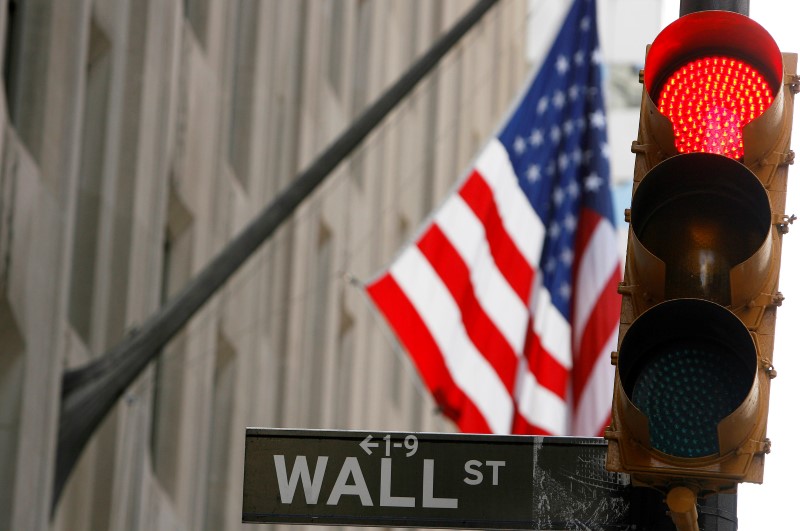Investing.com – Wall Street futures pointed to a lower open on Friday as investors prepared to digest remarks from Federal Reserve officials and remained wary of the arrival of Hurricane Irma stateside along with expectations for another missile launch from North Korea.
The blue-chip Dow futures fell 88 points, or 0.40%, at 6:56AM ET (10:56GMT), the S&P 500 futures lost 10 points, or 0.39%, while the tech-heavy Nasdaq 100 futures traded down 20 points, or 0.33%.
With no major economic reports on docket, remarks from Fed officials after prior session’s close would be priced into equities on Friday.
New York Fed president William Dudley called on the U.S. central bank to continue gradually raising interest rates, as low inflation should rebound.
Meanwhile, Kansas City Fed president Esther George didn’t back down from her hawkish stand, saying that it was time for rate hikes to continue and confirmed that the U.S. central bank had begun to discuss “very explicitly” how to begin the unwinding of the balance sheet.
Also speaking late Thursday, Cleveland Fed chief Loretta Mester reaffirmed her belief that further removal of accommodation via gradual increases in the fed funds rate will be needed.
Despite these generally hawkish comments, markets continued to show their skepticism, putting odds of just 32% on the possibility that the Fed will hike rates in December, according to Investing.com’s Fed Rate Monitor Tool.
Still ahead, Philadelphia Fed Patrick Harker will make remarks at the "New Perspectives on Consumer Behavior in Credit and Payments Markets" Conference at 8:45AM ET (12:45GMT) Friday.
The dollar hit a 32-month low on Friday as concerns over the economic impact of Hurricanes Harvey and Irma along with ongoing tension over North Korea weigh on the currency.
Traders are concerned that the impact from Hurricane Harvey is causing data distortions and these data skews may cause the Federal Reserve to sit on their hands for the rest of 2017.
In addition, Hurricane Irma will undoubtedly add to the turmoil. The historic storm, one the strongest in the last 100 years, claimed at least 14 lives as it hurtled through the Caribbean islands, while hundreds line up for water and fuel in Florida, ahead of landfall this weekend.
Though the National Hurricane Center downgraded the storm to category 4 from category 5 it continues to describe Irma as “extremely dangerous”.
Investors in stocks were also cautious over speculation that North Korea's next display of defiance could come in the form of yet another missile launch as early this Saturday, to coincide with the country's founding day.
Meanwhile, oil prices were mixed on Friday, with U.S. crude futures sliding lower and Brent prices moving higher after data on Thursday showed a rise in U.S. stockpiles last week and as markets prepared for potential supply disruptions caused by Hurricane Irma.
West Texas Intermediate oil was still on track for weekly gains of more than 3%, while the London barrel saw some support Friday from news that Saudi Arabia will cut crude oil allocations to its customers worldwide in October by 350,000 barrels per day.
U.S. crude futures traded down 0.29% to $48.95 by 6:57AM ET (10:57GMT), while Brent oil gained 0.50% to $54.76.
Investors also looked ahead to the latest gauge on U.S. shale production.
Baker Hughes will release its most recent weekly rig count data later on Friday.
Elsewhere, European bourses showed mixed trade as global caution and a stronger euro put the brakes on risk sentiment in the region. At 6:58AM ET (10:58GMT), the European benchmark Euro Stoxx 50 dropped 0.15%, Germany’s DAX inched up 0.03%, while London's FTSE 100 fell 0.48%.
Earlier, Asian shares also closed mostly lower as a weak reading on Chinese exports dampened sentiment.
